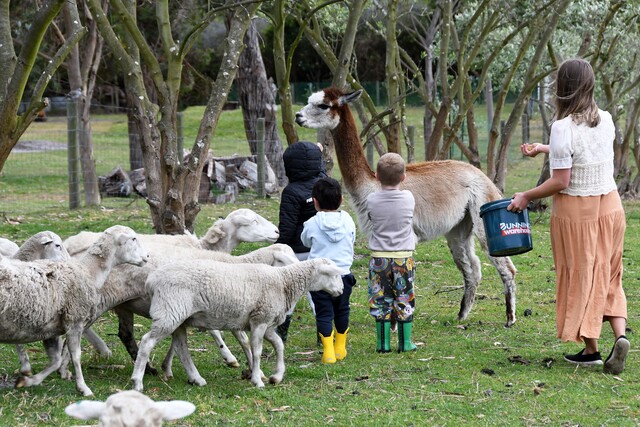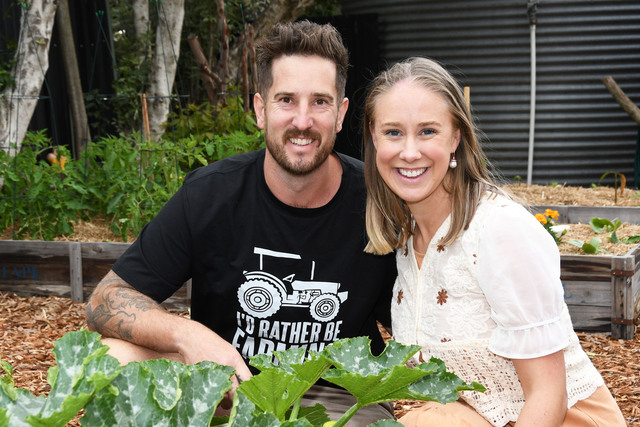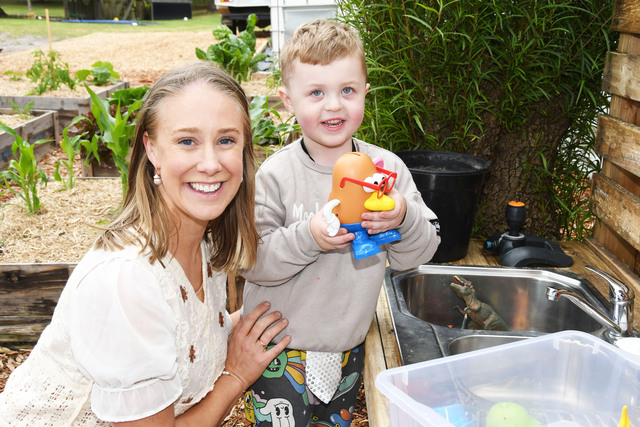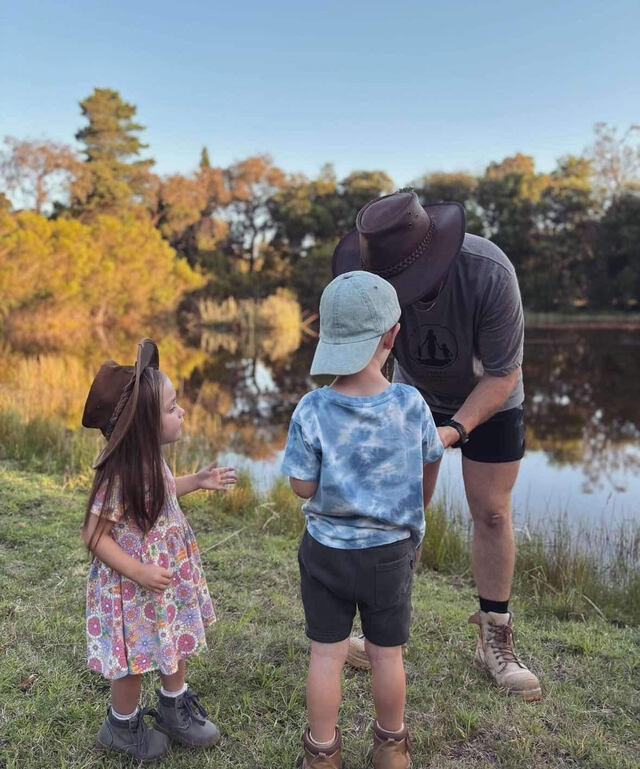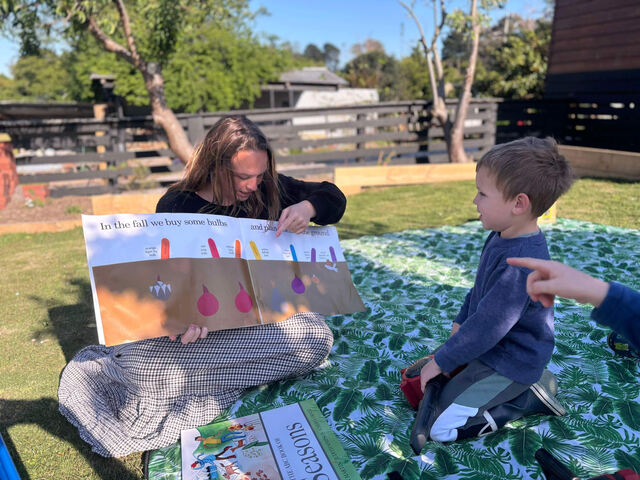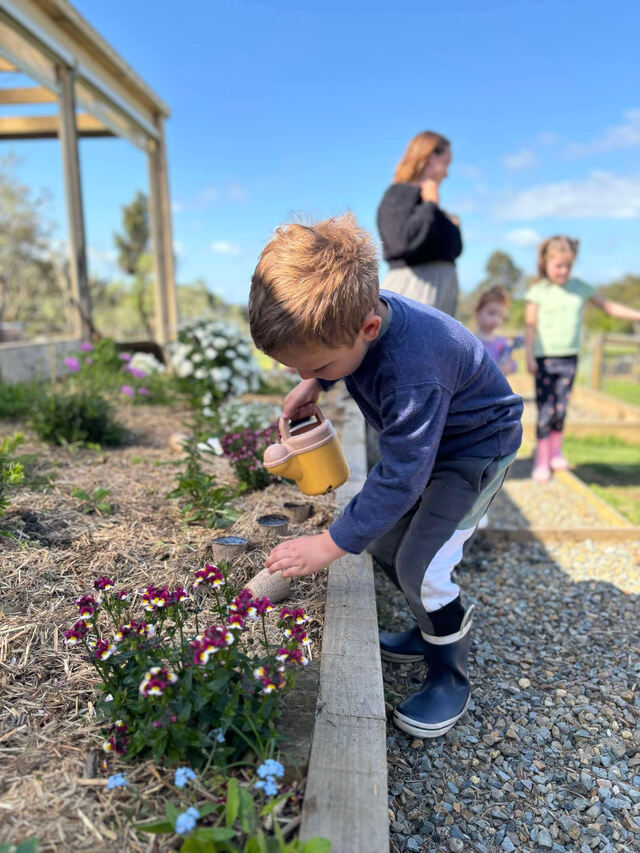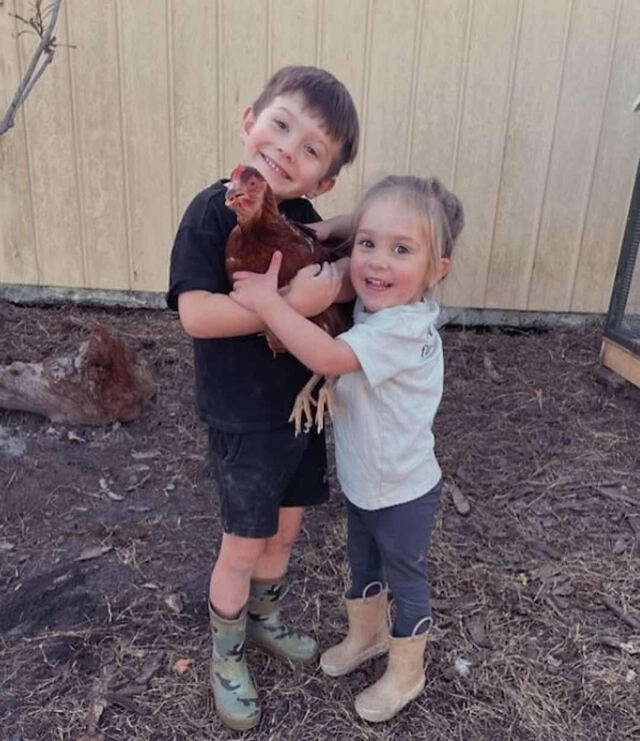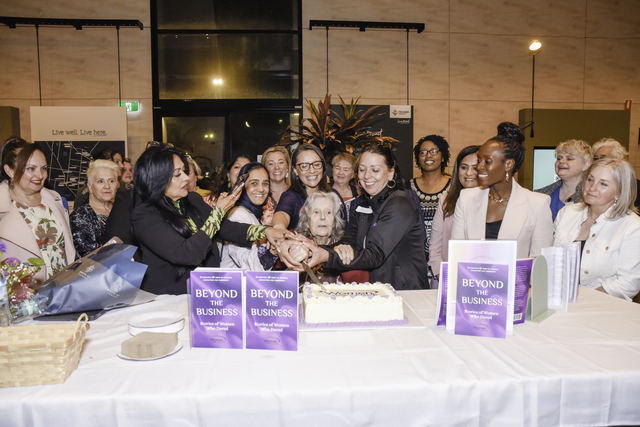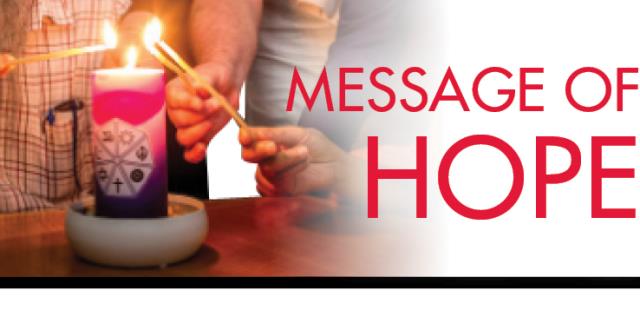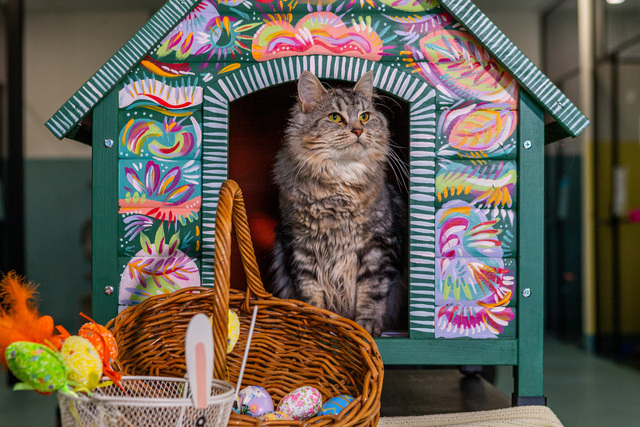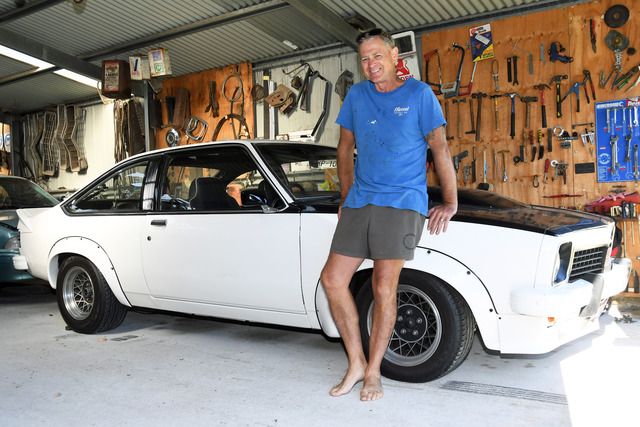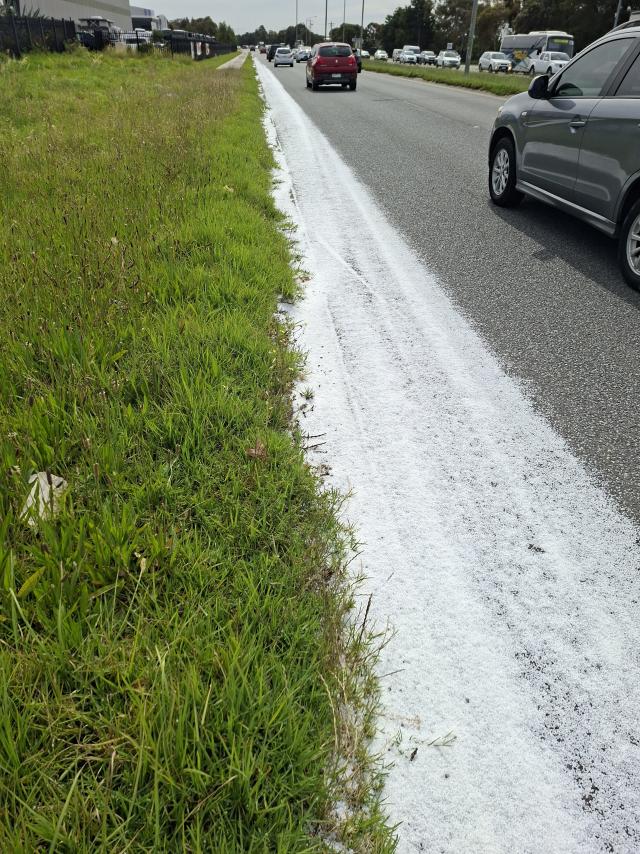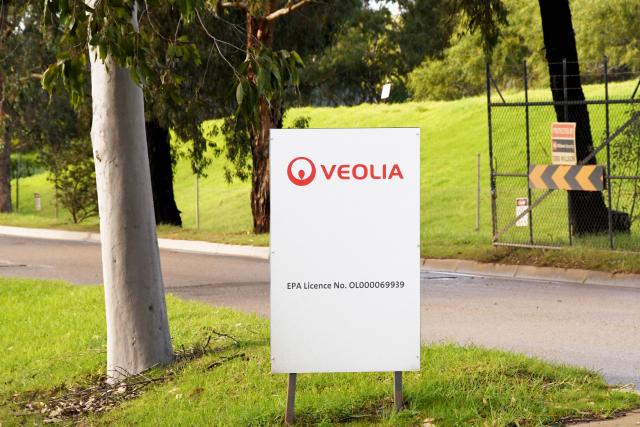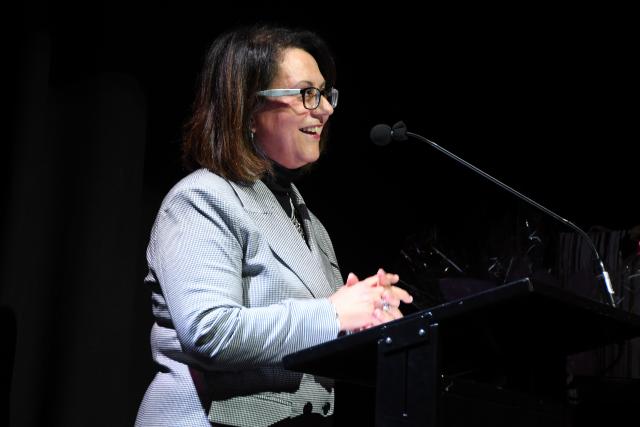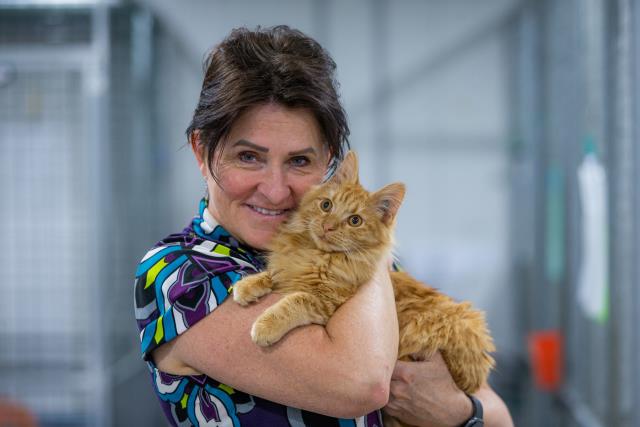PRECEDE: For parents of children with special needs, hope can be hard to hold on to. But on Nurture Homestead in Pearcedale, there is a shining light reports Gazette Journalist Afraa Kori.
BREAKOUT QUOTE: “As we spent more time at the property we could see just how much the positive influence of being outside more often, being responsible for and caring for animals, plants and nature was. We also could see so much growth in front of our eyes in terms of our flowers and gardens and could see this as a really wonderful learning space that is very different to a clinical room for intervention.”
Husband and wife Anthony and Jessica Davies are growing more than just crops, they are nurturing young minds and inspiring limitless possibilities.
They moved to acreage early this year and launched their newest farm, Nurture Homestead and an innovative program titled Nurture to Thrive.
Jessica had already begun Nurture to Thrive working as a key worker supporting many children and their families. When she moved to this peaceful, rural setting, she noticed how positive being in the environment with her own children was.
“It naturally came about, as we organised various areas for our animals and realised that this could be a wonderful space for the children to receive therapy – 1:1 or in small groups,” Jessica said.
“We are looking to create some of our own farm produce – flowers, honey and eggs long term. We would also like to become a charity. Longer term we would like to link our work with the South Pacific as Fiji has a very special place in our family’s heart.”
Jessica is driven by the lack of support for parents and children with developmental delays and diagnoses.
She completed a Bachelor of Early Childhood at the University of Melbourne in 2010 and worked as a primary school teacher for 13 years, with the last couple of years outside the classroom as the whole school wellbeing coordinator. Even whilst studying, she had an interest in assisting children with additional needs and worked as a volunteer for both Starlight Children’s Room at The Royal Children’s Hospital and also Variety Children’s Foundation. When she was in the wellbeing role, she worked tirelessly to ensure families were heard and supported, teachers were also given support and managed the education aide staff. She applied for funding for children with additional needs and set up programs and support for those to thrive.
The only way to enhance children’s learning experience is through a farm setting and nature based interventions.
“As we spent more time at the property we could see just how much the positive influence of being outside more often, being responsible for and caring for animals, plants and nature was. We also could see so much growth in front of our eyes in terms of our flowers and gardens and could see this as a really wonderful learning space that is very different to a clinical room for intervention,” she said.
“Nature-based interventions help children slow down. They promote a sense of responsibility. Due to the environment, it has to be structured which really assists children with additional needs. It also helps independence as it is a drop and go program.
“It provides a different environment that changes daily with the senses – the weather, the seasons, the nature changes. Nature is always evolving and the children see and feel change week to week. It promotes natural play where children are able to explore next to each other and work together. Emotionally, it is a very safe space being quite structured, and the visits to the animals and being more mindful helps to slow the children down. We also discuss what we see, feel, hear, touch and at times can taste on the farm. We work towards strengthening children’s resilience and encourage them to try new experiences.”
“The children have to work together, support each other and are taught to praise each other. They help with organising food for the animals, feeding them, helping clean the areas, provide fresh water, collect the eggs, maintain the vegetable gardens and greenhouse, take care of their own belongings they bring in their backpack and work together to clean up. We also set up activities like scavenger hunts where they can work together in small groups to achieve an end goal together.”
Nurture Homestead promotes environmental awareness and education by teaching children about sustainability, gardening, responsibility of the animals, vegetable gardens and children where food comes from.
Nurture to Thrive supports children aged 2-10 years with Autism, ADHD, cerebral palsy and other genetic and medical conditions.
This program is run by Jessica and Kira, who are trained in early childhood education and worked in the disability field. They speak with the paediatricians, allied health and parents/caregivers to understand each child’s specific need and carefully plan areas and programs to ensure all children can participate.
“It can be a very overwhelming world entering parenthood, and even more so if you have a child with additional needs. There is the support out there that can help you, one step at a time,” Jessica said.
“There are so many families requiring support that we pride ourselves in working together very closely with many schools, early learning settings and other allied health which will benefit the families. It is so important that children get the help they need, and deserve at such a critical time. It is just as important for the parents too to feel heard and supported.”
Despite being new to the game, Nurture Homestead has been a huge success with already supporting 55 families from Cardinina, Casey, east Gippsland, Peninsula and Frankston.
A Cardinina resident and parent Aaron Bickery believes Nurture’s approach to farm-based learning is unique, as he has seen his children grow more than when they attended kindergarten.
“My son has ASD, Autistic and ADHD. My daughter has ADHD at the moment and we’re in the process of getting an ASD diagnosis. My children were extremely reserved and shy and wouldn’t join in. Since going to Nurture Farm, Indy’s had four prep transitions and after the fourth one, she’s now joining in with the groups and is a lot more confident. She’s been having the transition sessions as well as the Nurture Farm sessions so that’s definitely seen a big improvement in her confidence levels and disability. They’re socialised and partaking in activities with the group.”
“I think in terms of just the socialisation with our children, with other kids as well, but also without that program, it’s really hard to get her (his daughter) to engage. I think she feels really comfortable with Jess and Kira in that setting, that she’s able to go and leave our side. Normally when we drop her at kinder, there’s separation anxiety and things like that. But when we drop her at the farm, then it’s just the animals that work as a distraction and she’s doing really well. It’s sort of like a farm in a home setting so the children feel like it’s a second home for them almost when they’re going there regularly. They feel really comfortable and it’s a safe space for them.”
“Animals and gardening play a huge role in teaching life skills, responsibility and empathy. It brings meaning to their learning. So the kids know where their food products come from, but also the care and compassion that they get from interacting with the animals. Sort of translates into the way they deal with other friends and social situations.”
Nurture Homestead and Nurture to Thrive is a community asset for many parents with special needs children.
“Jess just loves children and wants the best for them. She’s not afraid to have difficult conversations either and going and exploring, not exploring, but going and working in schools as well with our eldest child. Observing him and helping him has been a big asset as well. But Jess is phenomenal, she just loves kids and understands them and can work out a plan to develop them from where they are to meet their needs, to get them where they need to go,” Aaron said.
“We had some issues navigating NDIS and we reached out to Jess. Jess’s knowledge of the system is phenomenal. She allowed us just to access the support we needed and really assisted us through that process. Jess was able to engage with us to help us get more services for our child. One of those services is obviously Nurture Farm, which is a great way for kids. They learn a lot through animals and Jess and Kira have both been exceptional with understanding our children and they work with both of our children. So just really good at engaging with them, teaching them some social skills and self-regulation skills. We’ve just seen real improvements in both those areas with both children attending.”

